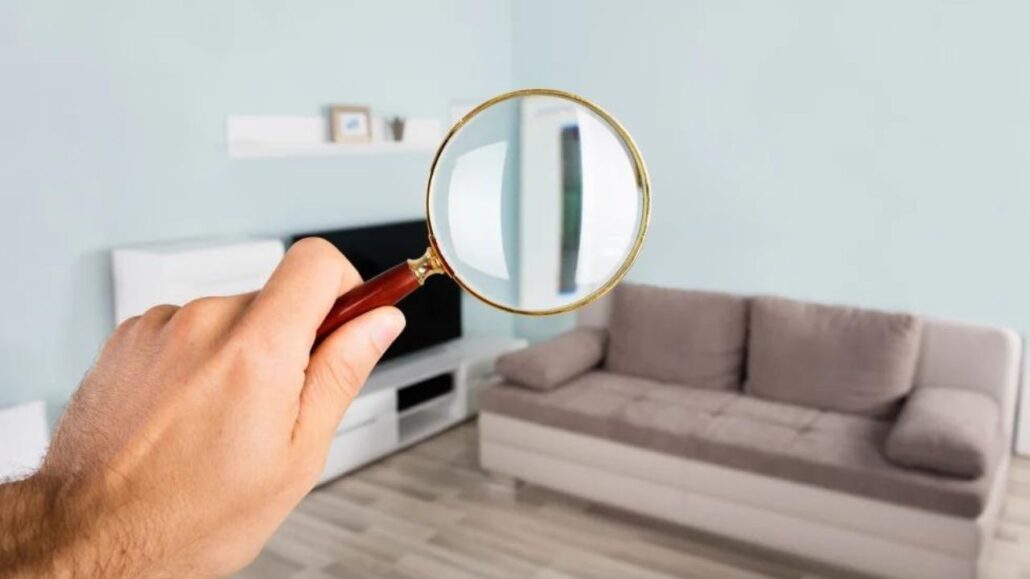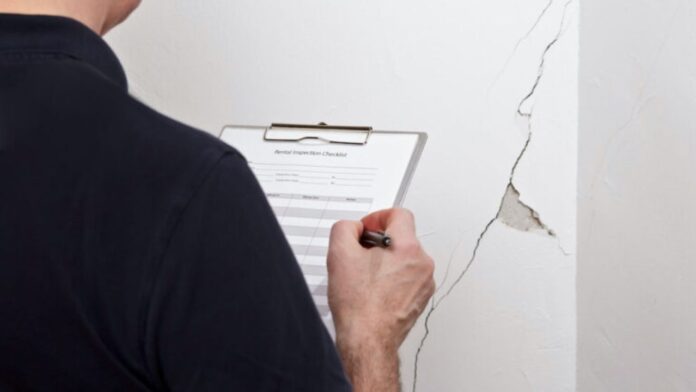If you’re a renter or a property owner, you’ve probably heard the term “insurance inspection apartment” thrown around. But what exactly is an insurance inspection for apartments, and why is it important? In this detailed tutorial, we will go deeply into apartment insurance inspections, demystifying the procedure and shedding light on its significance.
Insurance Inspections for Apartments

Insurance inspections for apartments are an essential part of the insurance industry. Whether you’re a property owner looking to insure your apartment building or a tenant seeking renters’ insurance, the process involves carefully examining the property to determine its condition and assess potential risks. Understanding what these inspections entail and why they are necessary can help you navigate the world of apartment insurance more confidently.
Defining the Basics
An insurance inspection for apartments systematically evaluates a residential property’s condition and safety features. This inspection is typically conducted by a trained inspector or a representative from an insurance company. Its primary purpose is to assess the risks associated with insuring the property and to determine appropriate coverage options and premiums.
During the inspection, various aspects of the apartment are thoroughly examined, including its structural integrity, safety features, fire hazards, plumbing and electrical systems, and security measures. The findings from the inspection play a crucial role in shaping the insurance policy’s terms.
Why are Insurance Inspections Necessary for Apartments?
The Purpose and Benefits of Insurance Inspection Apartments
Insurance inspections for apartments serve several essential purposes:
Risk Assessment: Insurers must evaluate the potential risks associated with an apartment. This evaluation assists in determining the degree of risk associated with insuring the property.
- Which, in turn, affects the cost of insurance premiums.
- Coverage Determination: The inspection findings influence the type of coverage available for the apartment. For example, an apartment with outdated wiring may only be eligible for certain coverage options once the wiring is updated to meet safety standards.
- Liability Mitigation: These inspections identify potential safety hazards within an apartment. Property owners and tenants can reduce the risk of accidents or injuries by addressing these hazards and minimizing potential liability claims.
When Do You Need an Insurance Inspection Apartments?
Key Scenarios of Insurance Inspection Apartments
Insurance inspections for apartments are required in the following scenarios:
- New Policy Application: When applying for a new apartment insurance policy, insurance companies often require an inspection as part of the underwriting process. This initial inspection helps the insurer assess the risk before providing coverage.
- Policy Renewal: Inspections may be necessary when renewing an existing policy. This ensures that the apartment’s condition has not significantly deteriorated since the initial policy was issued.
- Policy Changes: If significant changes are made to the apartment, such as renovations or additions, the insurance company may request an inspection to update the policy accordingly.
The Insurance Inspection Process
Step-by-Step Breakdown
The insurance inspection process typically consists of the following steps:
Pre-Inspection Preparation
Before the inspection, apartment owners and tenants should take several preparatory steps:
- Ensure the apartment is clean and well-maintained.
- Make sure all areas are accessible for inspection.
- Assemble any necessary paperwork, such as invoices for recent upgrades or maintenance logs.
- Test safety features like smoke detectors and fire extinguishers.
On-Site Inspection
During the inspection, a representative from the insurance company will visit the apartment to conduct a thorough examination. This includes assessing the apartment’s condition, safety features, and potential hazards. The inspector may take photographs or notes to document their findings.
Post-Inspection Evaluation
After the inspection, the findings are reviewed by the insurance company. Depending on the results, the insurance company may make coverage adjustments, recommend safety improvements, or proceed with the policy issuance or renewal.
Areas of Focus in an Insurance Inspection Apartments
What Gets Inspected
Insurance inspections for apartments cover a range of critical areas, including:
- Structural Integrity: The overall condition of the apartment’s structure, including walls, ceilings, floors, and the roof, is assessed. Any signs of structural damage or deterioration may impact insurance coverage and premiums.
- Safety Features: Fire extinguishers, carbon monoxide detectors, and smoke detectors are all essential for tenant safety. Inspectors look for these gadgets and make sure they work.
- Fire Hazards: Inspections focus on potential fire risks, including the condition of electrical wiring, heating systems, and the presence of flammable materials.
- Plumbing and Electrical Systems: Plumbing and electrical systems are examined to ensure they meet safety standards. Leaks, faulty wiring, or outdated systems may lead to coverage limitations.
- Security Measures: Security measures like deadbolt locks, window locks, and alarm systems can reduce the risk of theft or break-ins. The presence and condition of these features are part of the inspection.
Preparing for an Insurance Inspection Apartments
Tips and Guidelines
Whether you’re an apartment owner or a tenant, preparing for an insurance inspection is essential. Here are some guidelines to help you get ready:
For Apartment Owners:
- Maintain the Property: Regular maintenance and upkeep of your apartment can go a long way in ensuring a smooth inspection process.
- Accessibility: Ensure that all apartment areas are accessible to the inspector. Clear any clutter or obstacles that might hinder the inspection.
- Documentation: Keep records of any repairs or upgrades you’ve made to the apartment. Having documentation can help support the condition of your property.
For Tenants:
- Notify Your Landlord: If you’re a tenant, inform your landlord about the upcoming inspection. It’s a courtesy that allows them to prepare the property as well.
- Clean and Tidy: Take the time to clean and tidy your living space before the inspection. This not only makes a positive impression but also facilitates the inspection process.
- Report Maintenance Issues: As soon as you become aware of any maintenance problems in your flat, contact your landlord. The inspection can go more smoothly by taking care of these issues beforehand.
What Happens After the Inspection?
Post-Inspection Actions Apartment Insurance Inspections
After the inspection, several possible outcomes may occur:
- Coverage Adjustments: The insurance company may adjust the coverage and premium accordingly based on the inspection findings. The insurer may require improvements before providing coverage if safety hazards or significant risks are identified.
- Recommendations for Improvement: In some cases, the insurance inspector may provide recommendations for safety improvements. Addressing these recommendations can enhance your safety and reduce insurance premiums.
Conclusion
The Bottom Line on Apartment Insurance Inspections
Insurance inspections for apartments, though often seen as a necessary step in the insurance process, serve a vital purpose in protecting both property owners and tenants.
They ensure that insurance coverage is tailored to each living space’s unique needs and risks, promoting safety and peace of mind. So, the next time you hear about an insurance inspection apartment, remember that it’s crucial to safeguarding what matters most in your rented or owned property.
FAQ
Addressing Common Queries
Is an insurance inspection mandatory?
While insurance inspections are not always mandatory, they are often required when applying for new policies, renewing existing ones, or making significant changes to the property.
How long does an insurance inspection take?
The duration of an inspection can vary depending on the size and complexity of the apartment. It typically takes a few hours to complete.
Can I be denied insurance based on the inspection results?
If the inspection reveals significant risks or safety hazards that are not addressed, you may be denied insurance or offered coverage with limitations.
What can I do to improve the results of an insurance inspection?
Regular maintenance, addressing safety concerns, and following the preparation guidelines mentioned earlier can improve the results of an inspection.



